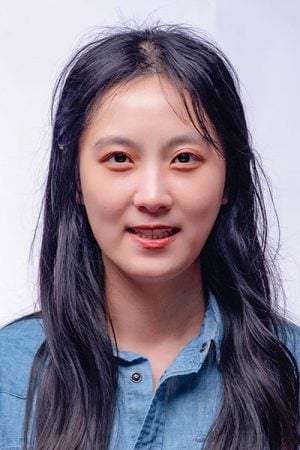Candidates for the multiple cybersecurity and computer science faculty position openings in the College of Computing will be visiting campus this semester, including Ruxin Wang. Wang’s presentation, originally set for Jan. 21, has been moved to Thursday, Jan. 23.

Bio
Ruxin Wang is currently a PhD candidate at Southern Methodist University, affiliated with the Department of Computer Science. Before that, she received her Master’s degree in Computer Engineering from Syracuse University. Her research interests include Cybersecurity, Mobile Sensing and Computing, AI for Security and AI in Healthcare.
Her work has been published in multiple high-impact conferences, including IEEE S&P, ACM MobiCom, ACM CHI, ACM WiSec and IEEE MASS. She is named among the NSF-funded Cyber-Physical System Rising Stars in 2024 and a recipient of the N2Women Fellowship. Her research has been reported by TechXplore, Tiger TV, AI News, Mobile ID World, Digital Trends, and 30 other media outlets.
Candidate: Ruxin Wang
Date and time of visit: 1p.m. Thursday, Jan. 23
Location: Fisher 133
Abstract
Advancing Security and Sensor Fusion in Cyber-Physical Systems
Smart devices play a crucial role in Cyber-Physical Systems by acting as the interface between users and the system, enabling real-time interaction and immersive experiences. However, existing user authentication methods for smart devices are insecure and intrusive, as they are vulnerable to replay attacks and require active human participation. Additionally, processing the large-scale and complex sensor data generated by these advanced devices remains a significant challenge. In this talk, I will share three approaches to address these security and sensor fusion issues. First, I apply acoustic sensing techniques to extract unique head biometrics and analyze them using generative AI models for Mixed Reality headset authentication. This work is the first to enable active acoustic sensing on commodity Mixed Reality headsets for user authentication. Extensive experiments and a year-long study demonstrate the system’s reliability in user authentication and its resistance to replay attacks. Second, I use visually captured images to extract multi-channel gripping hand biometrics and analyze them with transformer-based models to enhance the QR code system’s authentication security by verifying the scanner’s identity. The proposed system overcomes challenges such as varying scanning angles and light conditions, and effectively defends against both 2D and 3D replay attacks. Third, I leverage the varying contextual information provided by sensors in different locations to select the optimal sensor combination and apply a hybrid AI model to process the selected sensor data for sensor fusion in the healthcare domain. Specifically, I employ sensor fusion with Augmented Reality glasses for nutritional assessment and dietary habit tracking.
About the College of Computing
The Michigan Tech College of Computing, established in 2019, is the first academic unit in Michigan dedicated solely to computing, and one of only a handful such academic units in the United States. The college is composed of two academic departments. The Computer Science department offers four bachelor of science programs in computer science, cybersecurity, data science, and software engineering; four master of science programs in applied computer science, computer science, cybersecurity, and data science; and a doctoral program in computer science. The Applied Computing department offers four bachelor of science programs in cybersecurity, electrical engineering technology, information technology, and mechatronics; two master of science programs in health informatics and mechatronics; and a doctoral program is in computational science and engineering.
Questions? Contact us at computing@mtu.edu. Follow the College of Computing on Facebook, Instagram, LinkedIn and Twitter.